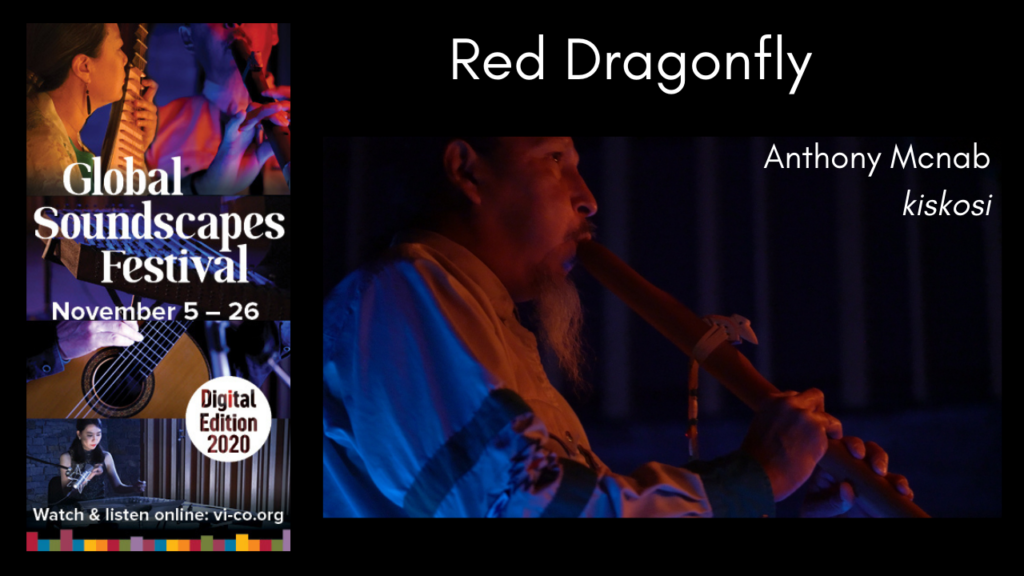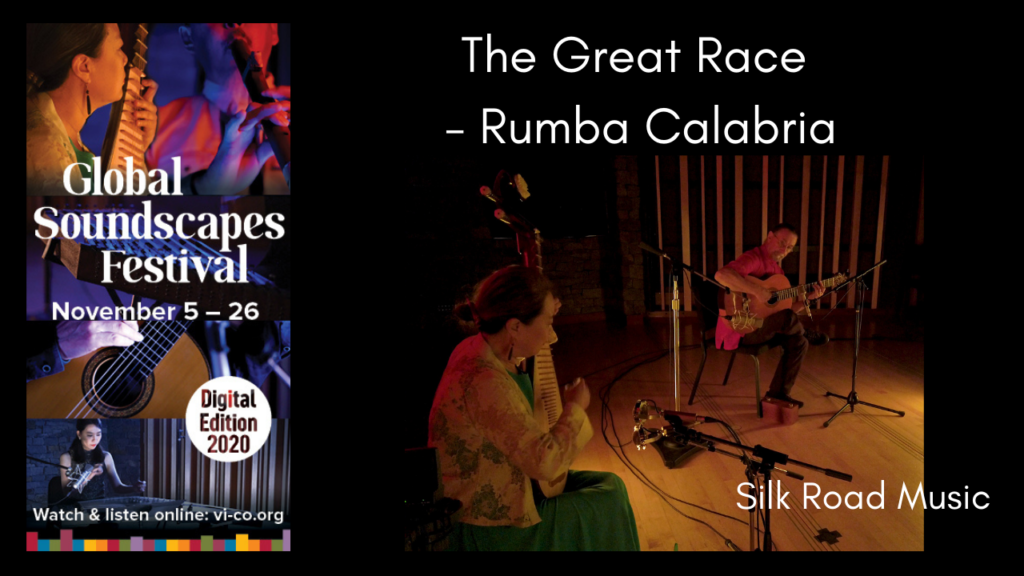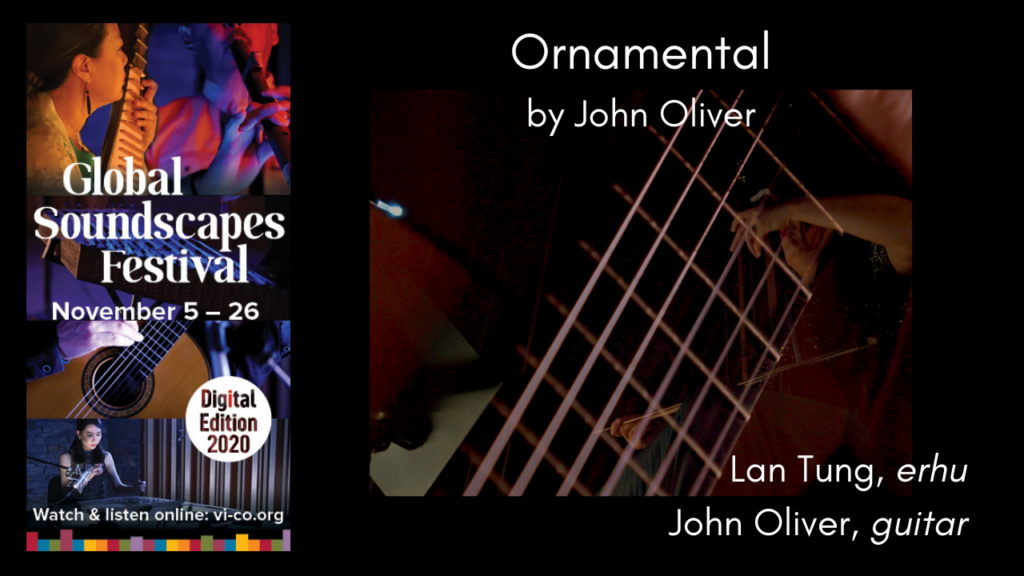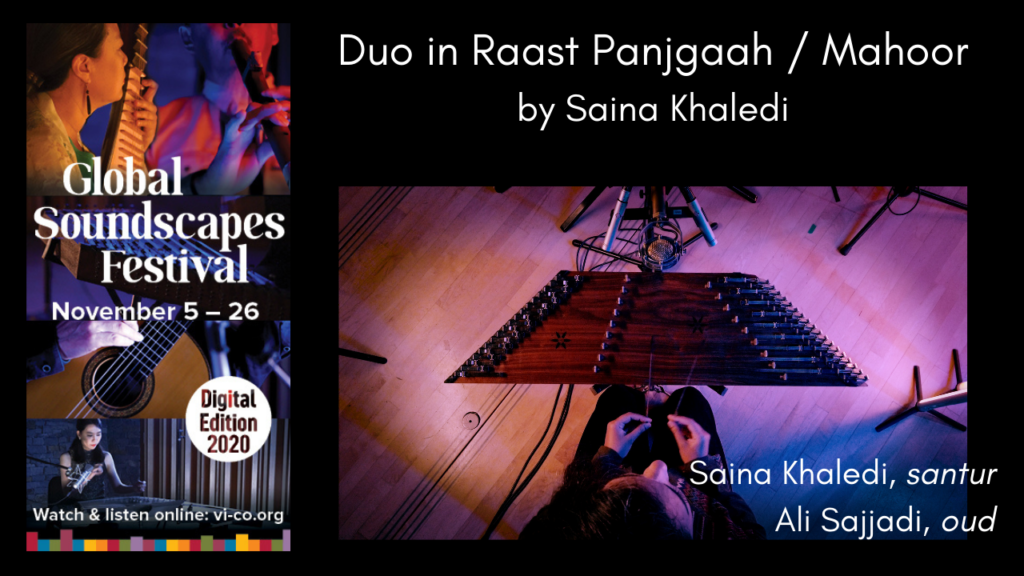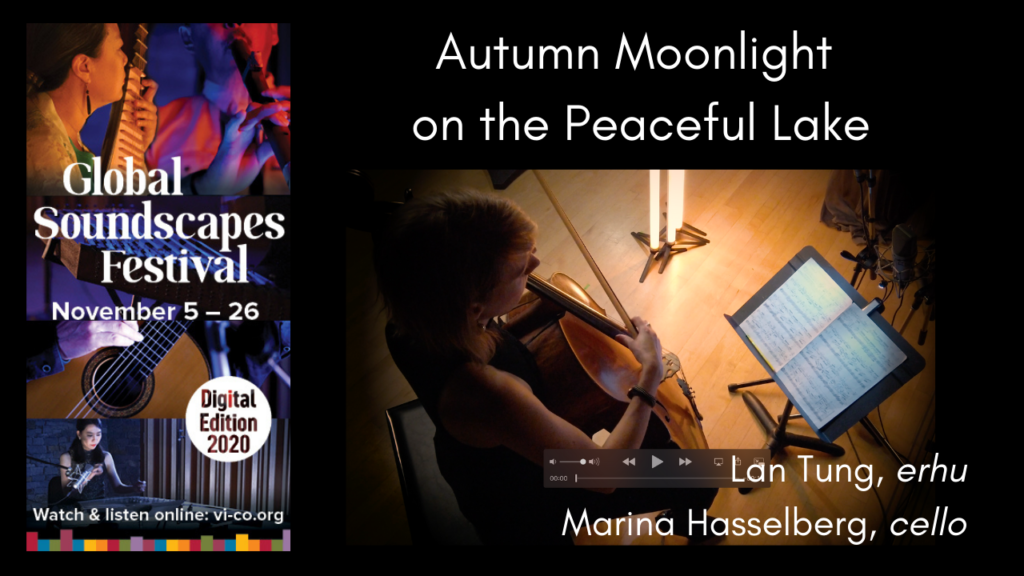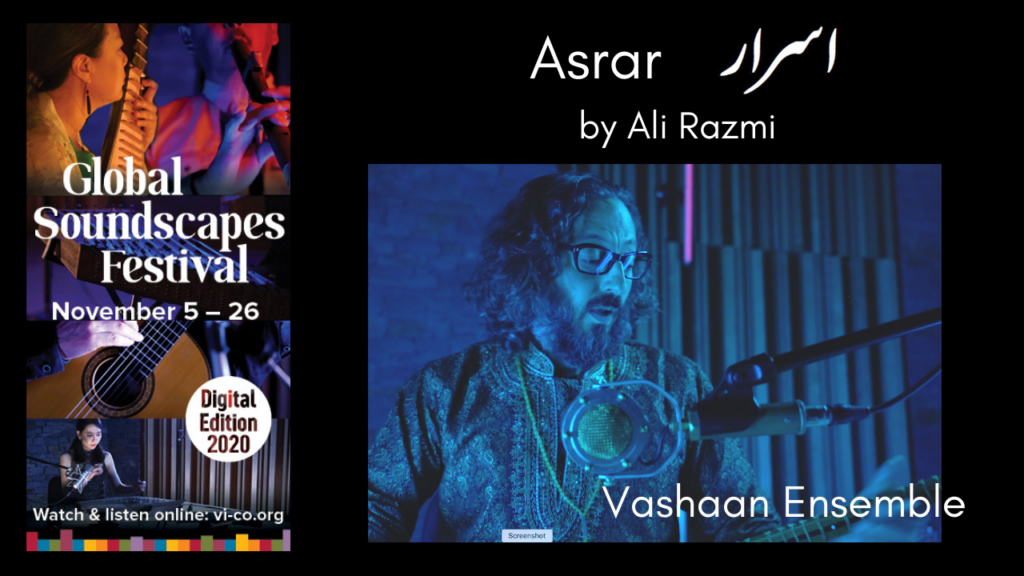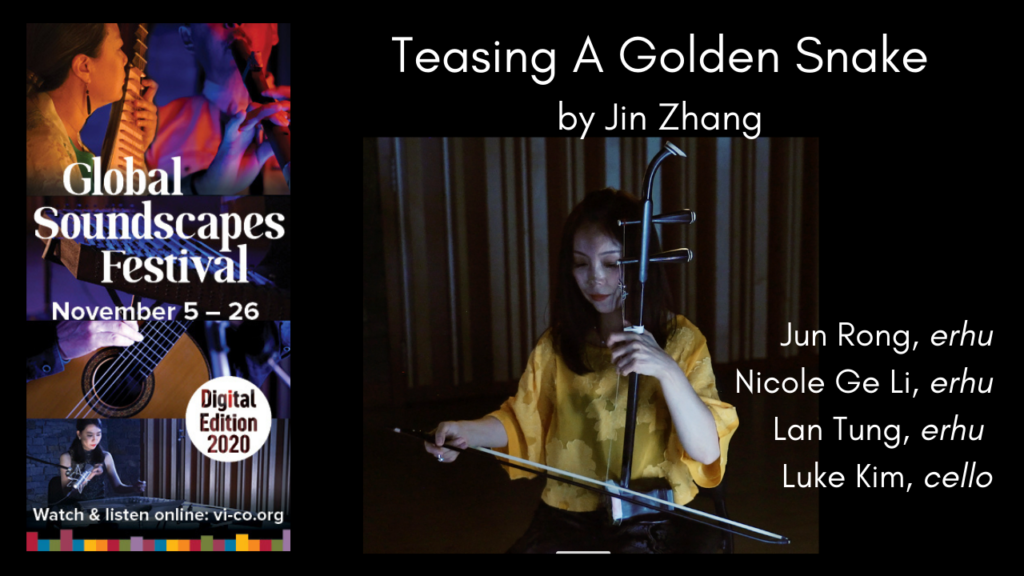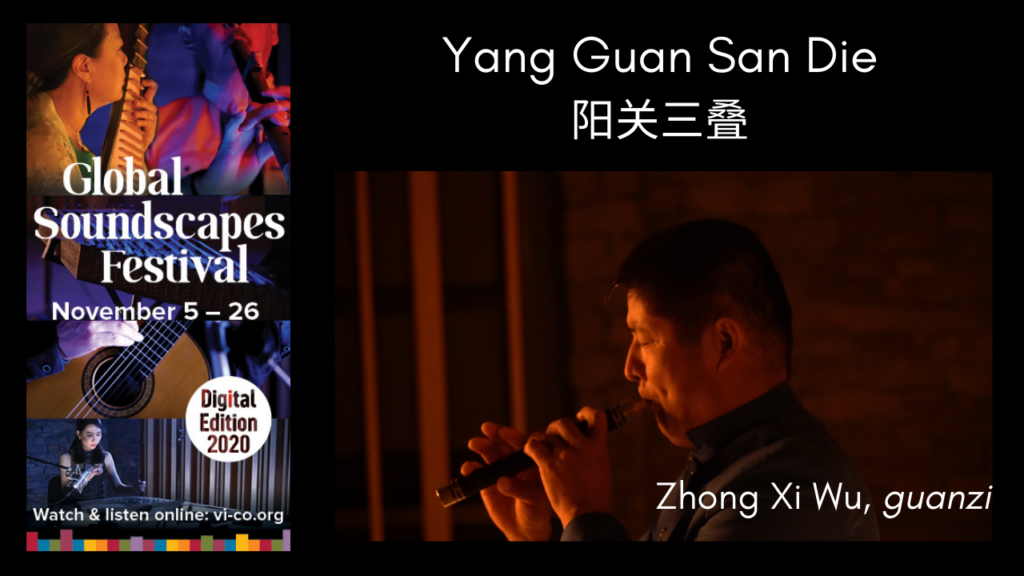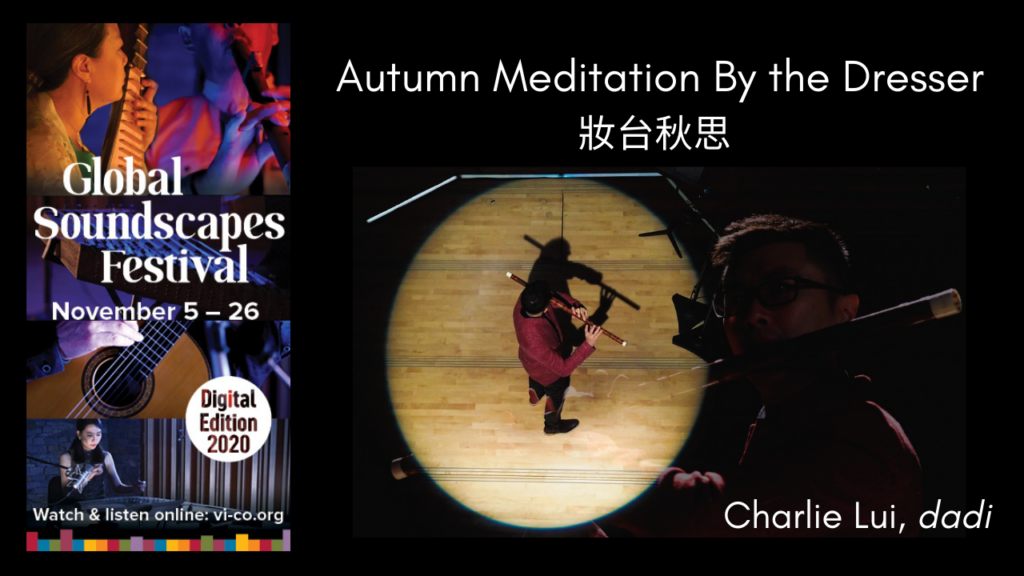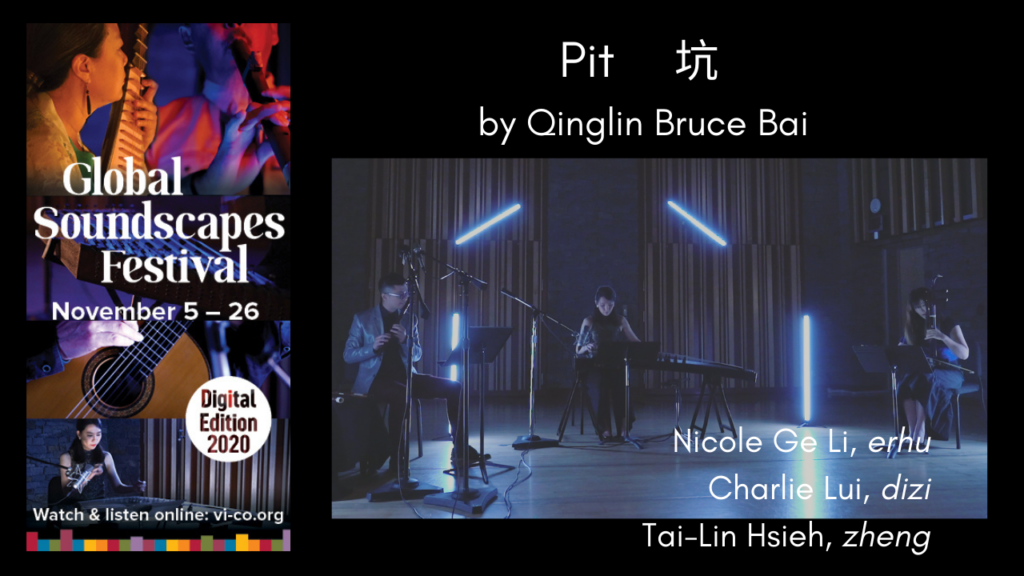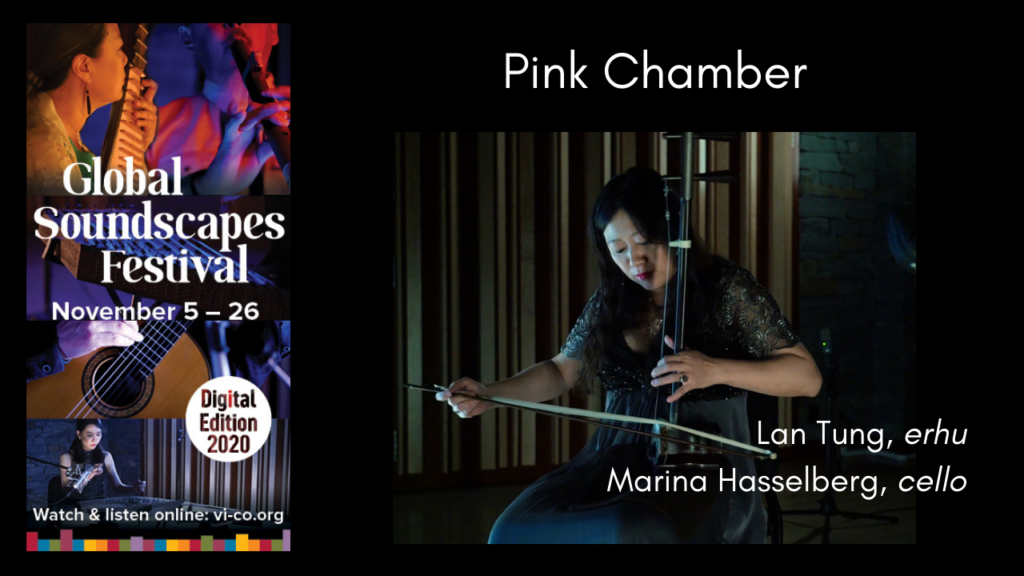The Road to Kashgar by Moshe Denburg
Moshe Denburg (composer)
Moshe Denburg hails from a well-known Montreal Rabbinical family, and came to the West Coast in 1982. His musical career has spanned five decades and his accomplishments encompass a wide range of musical activities, including composition, performance, music education, and artistic direction. He has studied music extensively, both formally and informally, and for the past 30 years has been engaged in exploring the musical resources of the non-Western world, creating music that challenges musicians of differing disciplines to work together across aural/written cultural divides, and to find a common musical aesthetic. He has traveled and studied worldwide, including in the United States, Israel, India and Japan. In 2001 Moshe founded the Vancouver Inter-Cultural Orchestra, and has been involved in its evolution ever since. His compositions have been performed, recorded, and broadcast at festivals and on the radio both in Canada and abroad. He is the recipient of many Canada Council grants and commissions and is an associate composer of the Canadian Music Centre.
Composer’s note: The legendary Silk Road, which stretched from Xian (the ancient Chinese capital, Changan) in the East, to Central Asia, India, Persia, and the Mediterranean and Rome in the West, was in fact not one but a network of routes that connected these diverse civilizations. The approximate midway point of the road, a market place where all roads led, was Kashgar in the westernmost part of China. Kashgar is thus a synonym for the congress of ideas, people, and goods that was the Silk Road.
The present work, written for a trio of Zheng (Chinese Zither), Erhu (Chinese Fiddle) and Darabuka (Middle Eastern Drum), is meant to depict one of many possible cultural configurations that one may have met with in or near Kashgar. As the rhythmic scheme of 7/8 is reminiscent of the music of Persia or India, this particular caravan is likely approaching Kashgar from the West. The Road to Kashgar is the first of a planned series of musical pictures of the Silk Road. Apart from the historical fascination of the routes, the geography of these ancient East-West highways is stunning, from vast deserts to great mountain ranges, and thru the sparkling valleys and oases that made the routes traversable.
Orchid Ensemble
Established in 1997, the JUNO-nominated Orchid Ensemble is acclaimed as “one of the most adventurous groups uniting Eastern and Western musical traditions” (Georgia Straight). The trio is made up of internationally renowned musicians Lan Tung (Taiwan/Canada) on the erhu/Chinese violin & vocals, Tai-Lin Hsieh (Taiwan/Canada) on the zheng/Chinese zither, and Jonathan Bernard (Canada) on percussion, including the marimba.
The ensemble regularly commissions and premieres new compositions. It has embraced a variety of styles in its repertoire, ranging from Taiwanese and Chinese music, World Music, New Music to Creative Improvisation. Its highly regarded interdisciplinary productions fuse music, dance (contemporary, aerial, flamenco, Chinese…etc), visual arts, and media arts.
The ensemble collaborates with artists from various genres, exploring new grounds and breaking down boundaries. In addition, the ensemble has created unique collections of works for its choral, orchestral, and cross-cultural collaboration projects. Past collaborators include Turning Point Ensemble, Vancouver Bach Choir, Vancouver Inter-Cultural Orchestra, Little Giant Chinese Chamber Orchestra (Taiwan), Oktoécho (Montreal), Uzume Taiko, Aeriosa Dance, Mozaico Flamenco Dance Theatre, Chimerik, Moving Dragon…etc.
The ensemble tours regularly across North America, performing at concert halls, educational institutions, and festivals. Recent appearances include The John F. Kennedy Center for the Performing Arts, the Smithsonian Institution’s Freer Gallery, Canada Day Celebrations in Ottawa, Festival Miami, the Vancouver International Jazz Festival, the Chan Centre for the Performing Arts, and the National Arts Centre in Ottawa. As BC’s spokesperson for the UNESCO ASPnet in Canada, the Orchid Ensemble gives educational presentations to various age groups.
The ensemble’s four CDs have won two International Independent Music Awards and received numerous nominations for JUNO, Western Canadian Music Awards, Canadian Independent Music Awards, and Canadian Folk Music Awards. http://www.orchidensemble.com
About the Instruments
Erhu: a bowed instrument from China with a long neck and two strings between which a horsehair bow is placed. The strings are tuned to a fifth. The sound box may take different shapes – hexagon, octagon, round, or ellipse – and is covered on one side by snakeskin. The erhu performs an essential role in Chinese classical music as well as in the folk music tradition. It is held vertically to play – the left hand plays without a fingerboard, while the right hand holds the bow and plays one string at a time.
Zheng: a plucked half-tube wood zither from China, with movable bridges over which strings are stretched. The strings were traditionally made of silk, but today they are usually made of steel or metal wound nylon. The modern Zheng usually has 21 strings, tuned to a pentatonic scale. The performer uses the right hand to pluck the strings, and the tone can be modulated by the left hand pressing the string on the non-speaking side of the bridge.
Darabuka: a goblet drum played all over the Arabic world. It provides rhythmic accompaniment for classical Arabic ensembles and orchestras as well as for popular musical forms such as belly-dancing. Its body is made from fired clay or metal, and the drum head of animal or fish skin, or more recently, synthetic materials. It is also known as a Dumbek, in imitation of its two primary sounds: ‘Dum’ (a low bassy sound) and ‘Tek’ (a biting high pitched sound).
Video Production Credits
Director of Photography – Kerry Phillips
Gaffer / B Camera – Yong Jin Kim
Audio Engineer & Mix – Sheldon Zaharko
All additional photography – Kerry Phillips
Filmed and recorded on July 27, 2020 at Pyatt Hall (VSO School of Music) in Vancouver, British Columbia, Canada.
For the Vancouver Inter-Cultural Orchestra:
Global Soundscapes Festival Producer – Mark Armanini
Senior Project Manager – Farshid Samandari

